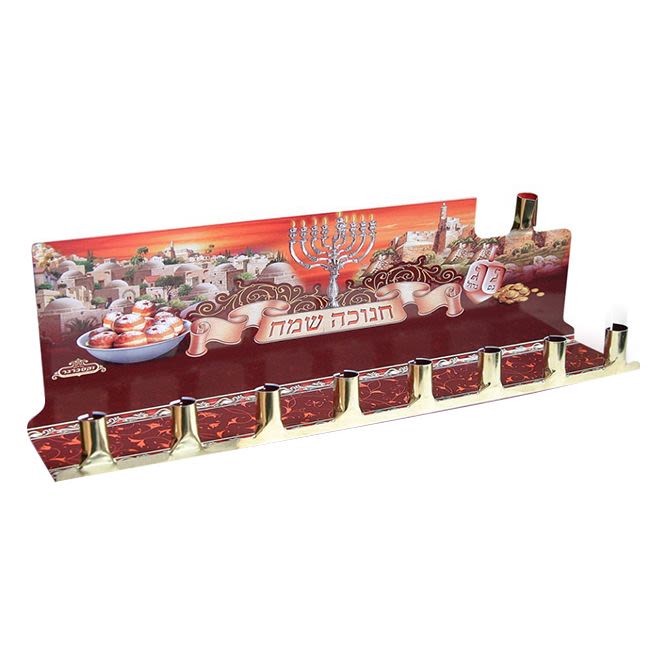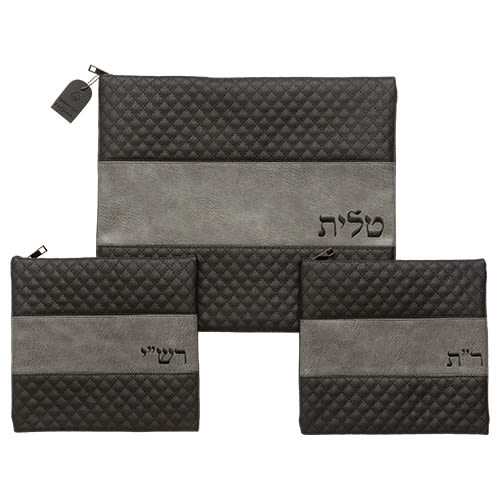
Vayakhel: Spread the Light
We learn something very precious from the fact that keeping Shabbat precedes even building the holy Tabernacle…

“Moshe assembled the entire assembly of the Children of Israel and said to them: ‘These are the things that Hashem commanded, to do them: On six days, work may be done, but the seventh day shall be holy for you, a day of complete rest for Hashem…’” (Chapter 35, Verses 1-2). Before beginning to detail the building of the Mishkan – the Tabernacle, the Torah portion begins with a warning to keep Shabbat. The Jewish people were taught here by Moshe (and in several other places in the Torah) that building of the Tabernacle does not override the commandment to keep Shabbat.
Rabbi Natan of Breslev asks: Why would someone think that building the Tabernacle would allow working on Shabbat? Behold, there is no mitzvah which is not time bound which nullifies Shabbat? He explains that the work of building the Tabernacle and its vessels is the spiritual aspect of building the palace of holiness (haichal hakodesh) which means bringing other souls closer to Hashem. By building the Tabernacle the Jewish people brought down Hashem’s presence into their midst, which is called the Shechinah. This means that the feeling of closeness and connection to God at the time of the Tabernacle, and afterwards in the Holy Temple, was much more powerful and tangible. Just as the Tabernacle was built physically with its most important part being the hall of holiness, which was before the curtain where the ark was placed, so too the spiritual hall of holiness was built by the souls of the Jewish people which came closer to Hashem through the leadership of Moshe, who led the building.
Therefore, we find, says Rabbi Natan, that this task of building the Tabernacle, which was a resting place for Hashem’s presence amongst the Jewish people, is very precious and important before God, more than any other service in the world. Why? Because the main revelation of Hashem’s greatness and his glory is when those who are far from him return and come closer to His service. For example, the Holy Zohar says that when Yitro came and converted to Judaism, Hashem’s name (the knowledge of Hashem in this world) was made much more glorious in the whole world.
This matter of building the spiritual Tabernacle by bringing Jewish souls closer to God, is the aspect of keeping Shabbat. Therefore, Rabbi Natan explains, someone might mistakenly have thought that the work of building the Tabernacle would take precedent over observing Shabbat in practice. Therefore, before the actual building of the Tabernacle started, Hashem commanded the Jewish people to rest on Shabbat (Likutei Halachot, Laws of a Mixture, 5th teaching).
This is something that we can all do. We can all help someone else come closer to Hashem by learning with them or speaking with them about faith and the meaning of life. Rebbe Nachman teaches in the book Advice about happiness, “When a person is happy, he can give encouragement and vitality to another person. It is a very great thing to make the heart of another person happy…” (Simcha, 38th teaching). The same thing is true when we teach and share teachings of Torah and emuna (faith) with other people. A person feels true healing in their soul when they come closer to Hashem, when they feel a true connection with Him and when they are searching to discover what is their special purpose in the world.
This teaching about the Tabernacle made me reflect on my own journey in life, especially since moving to Israel over thirteen years ago. Right after making Aliyah in the summer of 2005 I went to learn at Machon Meir, a yeshiva in Jerusalem for newly observant young men from all over the world who want to learn Torah. One of the special gifts I received there, in addition to the regular schedule of classes, was being able to learn with good mentors, people with more experience than me who gave of their time and knowledge to help me learn Torah and Jewish observance. These Rabbis and mentors also invited me and other students to their homes for Shabbos and holidays. I was able to feel the warmth of a home environment and learn more what it meant to build a Jewish home based on Torah values.
Inside myself I always had a desire to be able to do the same thing one day. One day in personal prayer I was asking myself, “what is my yeud (my special purpose in this world)?” I had been listening to my wife share about this concept for about a year, so I kept asking myself that question. What came to me was helping others find more meaning in their lives and come closer to Hashem. Shortly after this prayer and realization, I contacted my old yeshiva and volunteered to come once a week to learn with students in the English-speaking program. This was about 5 years after I had left the yeshiva to move down to Shomria. It was an amazing experience being back at the yeshiva, being able to learn Torah with the students and make new connections with people who had amazing stories! Also today, I feel like it is a special privilege for me to be able to do the same thing now with young men at the yeshiva I teach at in the evenings here in Bet Shemesh, Ashrenu.
There is someone out there waiting for you, for your special light, to learn with them, to give them some kind words, to help them grow from whatever place they find themselves in at that moment.
***
Republished with permission from breslov.blog.












Tell us what you think!
Thank you for your comment!
It will be published after approval by the Editor.